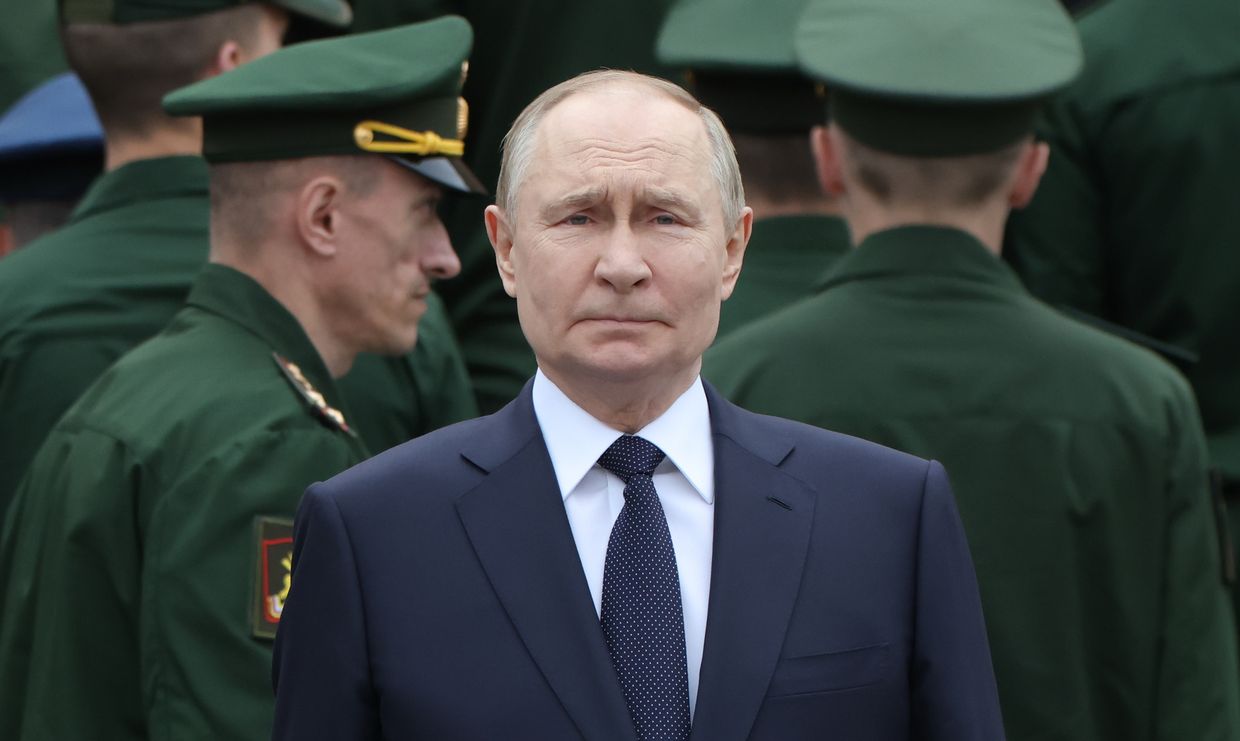IMF slashes Russia's growth forecast, says war-driven economy to 'slow down'

Russia's economy is set to sharply decelerate, returning to stagnation after two years of war-driven expansion, the International Monetary Fund (IMF) said in its latest global outlook published on July 30.
"We are expecting Russia's economic growth to slow down in 2025, and that is very much due to the policy tightening and lower oil prices," said Petya Koeva Brooks, deputy director of the IMF's research department.
The IMF cut its 2025 projections for Russia to 0.9%, more than four times lower than the 4.3% expansion recorded in 2024. Growth is projected to remain sluggish at 1% in 2026.
The revision marks the steepest downgrade among major economies in the Fund's report.
By contrast, the global economy is expected to grow by 3% this year and 3.1% in 2026, with emerging markets projected to expand at an even faster pace of 4% to 4.1%.
Key drivers behind the forecast downgrade include falling energy revenues, mounting budget pressures, and limits to further economic expansion under wartime conditions.
According to IMF estimates, Brent crude prices will decline 13.9% this year to an average of $68.18 per barrel, falling further to $64.33 in 2026. Russia's federal budget, already amended multiple times, had relied on prices staying above $70 per barrel.
Russia's largest liquefied natural gas producer, Novatek, reported a 34% drop in net profits in the first half of 2025, highlighting the broader impact of falling energy revenues.
The warning follows growing concern from Russia's top economic officials. Central Bank Governor Elvira Nabiullina said in June that Russia's war-fueled growth is "fading fast," and that the economy has reached the limits of its capacity.
Russian Economy Minister Maxim Reshetnikov echoed the concerns, telling a separate forum audience on June 19 that Russia is "on the verge of a transition to recession." He emphasized that recession is not inevitable and that "everything depends on our decisions."
Almost immediately, Russian President Vladimir Putin on June 20 dismissed the concerns, claiming that Russia's economy remained strong despite sanctions and war.
The IMF's findings reflect the cost of sustained militarization. Russia has raised defense spending to 6% of GDP in 2025 — the highest since the Cold War — while its civilian sectors suffer from labor and capital shortages.
Economist Andrei Movchan, founder of Movchan's Group, told the Kyiv Independent earlier this year that the Kremlin's heavy military outlays are choking broader economic performance.
Russia's battlefield losses, which recently surpassed 1 million according to Ukrainian estimates, have forced the Kremlin to rely on costly contract recruitment, further straining the budget as Moscow avoids mass mobilization.
The IMF's report signals that the artificial growth Russia achieved through wartime stimulus and defense industry mobilization is unsustainable, and that the country is set to lag far behind both developed and developing economies in the years ahead.













